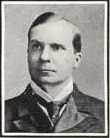St Pancras West (UK Parliament constituency)
 From Wikipedia the free encyclopedia
From Wikipedia the free encyclopedia
| St Pancras West | |
|---|---|
| Former Borough constituency for the House of Commons | |
| 1885–1918 | |
| Seats | one |
| Created from | Marylebone |
| Replaced by | St Pancras South West |
St Pancras West was a borough constituency represented in the House of Commons of the Parliament of the United Kingdom. It elected one Member of Parliament (MP) by the first past the post system of election. It was created by the Redistribution of Seats Act 1885 for the 1885 general election and abolished for the 1918 general election.
Boundaries[edit]

Members of Parliament[edit]
| Year | Member | Party | |
|---|---|---|---|
| 1885 | Harry Levy-Lawson | Liberal | |
| 1892 | Harry Graham | Conservative | |
| 1906 | Sir William Collins | Liberal | |
| 1910 | Felix Cassel | Conservative | |
| 1916 | Richard Barnett | Unionist | |
| 1918 | constituency abolished | ||
Elections[edit]
Elections in the 1880s[edit]
| Party | Candidate | Votes | % | ±% | |
|---|---|---|---|---|---|
| Liberal | Harry Levy-Lawson | 2,954 | 54.3 | ||
| Conservative | Walter Haweis James | 2,485 | 45.7 | ||
| Majority | 469 | 8.6 | |||
| Turnout | 5,439 | 76.6 | |||
| Registered electors | 7,103 | ||||
| Liberal win (new seat) | |||||
| Party | Candidate | Votes | % | ±% | |
|---|---|---|---|---|---|
| Liberal | Harry Levy-Lawson | 2,567 | 50.6 | −3.7 | |
| Conservative | Harry Graham | 2,503 | 49.4 | +3.7 | |
| Majority | 64 | 1.2 | −7.4 | ||
| Turnout | 5,070 | 71.4 | −5.2 | ||
| Registered electors | 7,103 | ||||
| Liberal hold | Swing | −3.7 | |||
Elections in the 1890s[edit]
| Party | Candidate | Votes | % | ±% | |
|---|---|---|---|---|---|
| Conservative | Harry Graham | 2,984 | 50.4 | +1.0 | |
| Liberal | Harry Levy-Lawson | 2,942 | 49.6 | −1.0 | |
| Majority | 42 | 0.8 | N/A | ||
| Turnout | 5,926 | 76.4 | +5.0 | ||
| Registered electors | 7,754 | ||||
| Conservative gain from Liberal | Swing | +1.0 | |||
| Party | Candidate | Votes | % | ±% | |
|---|---|---|---|---|---|
| Conservative | Harry Graham | 3,104 | 57.7 | +7.3 | |
| Liberal | William Collins | 2,273 | 42.3 | −7.3 | |
| Majority | 831 | 15.4 | +14.6 | ||
| Turnout | 5,377 | 74.6 | −1.8 | ||
| Registered electors | 7,208 | ||||
| Conservative hold | Swing | +7.3 | |||
Elections in the 1900s[edit]
| Party | Candidate | Votes | % | ±% | |
|---|---|---|---|---|---|
| Conservative | Harry Graham | 3,220 | 67.5 | +9.8 | |
| Liberal | Godfrey Benson | 1,553 | 32.5 | −9.8 | |
| Majority | 1,667 | 35.0 | +19.6 | ||
| Turnout | 4,773 | 64.2 | −10.4 | ||
| Registered electors | 7,431 | ||||
| Conservative hold | Swing | +9.8 | |||

| Party | Candidate | Votes | % | ±% | |
|---|---|---|---|---|---|
| Liberal | William Collins | 3,230 | 55.9 | +23.4 | |
| Conservative | Harry Graham | 2,545 | 44.1 | −23.4 | |
| Majority | 685 | 11.8 | N/A | ||
| Turnout | 5,775 | 79.3 | +15.1 | ||
| Registered electors | 7,282 | ||||
| Liberal gain from Conservative | Swing | +23.4 | |||
Elections in the 1910s[edit]
| Party | Candidate | Votes | % | ±% | |
|---|---|---|---|---|---|
| Liberal | William Collins | 3,553 | 50.1 | −5.8 | |
| Conservative | Robert Edmund Dickinson | 3,543 | 49.9 | +5.8 | |
| Majority | 10 | 0.2 | −11.6 | ||
| Turnout | 7,096 | 82.6 | +3.3 | ||
| Registered electors | 8,589 | ||||
| Liberal hold | Swing | −5.8 | |||
| Party | Candidate | Votes | % | ±% | |
|---|---|---|---|---|---|
| Conservative | Felix Cassel | 3,385 | 50.1 | +0.2 | |
| Liberal | William Collins | 3,376 | 49.9 | −0.2 | |
| Majority | 9 | 0.2 | N/A | ||
| Turnout | 6,761 | 78.7 | −3.9 | ||
| Registered electors | 8,589 | ||||
| Conservative gain from Liberal | Swing | +0.2 | |||
General election 1914–15:
Another general election was required to take place before the end of 1915. The political parties had been making preparations for an election to take place and by the July 1914, the following candidates had been selected:
- Unionist: Felix Cassel
- Liberal: James H. Scott
Felix Cassel's resignation on becoming a Judge Advocate General of the Armed Forces required a by-election.
| Party | Candidate | Votes | % | ±% | |
|---|---|---|---|---|---|
| Unionist | Richard Barnett | Unopposed | |||
| Unionist hold | |||||
References[edit]
- ^ a b c d e f g h i Craig, FWS, ed. (1974). British Parliamentary Election Results: 1885-1918. London: Macmillan Press. p. 44. ISBN 9781349022984..
- ^ a b c d e f The Liberal Year Book, 1907.
- ^ a b Debrett's House of Commons & Judicial Bench, 1901.
- ^ a b Debrett's House of Commons & Judicial Bench, 1916.